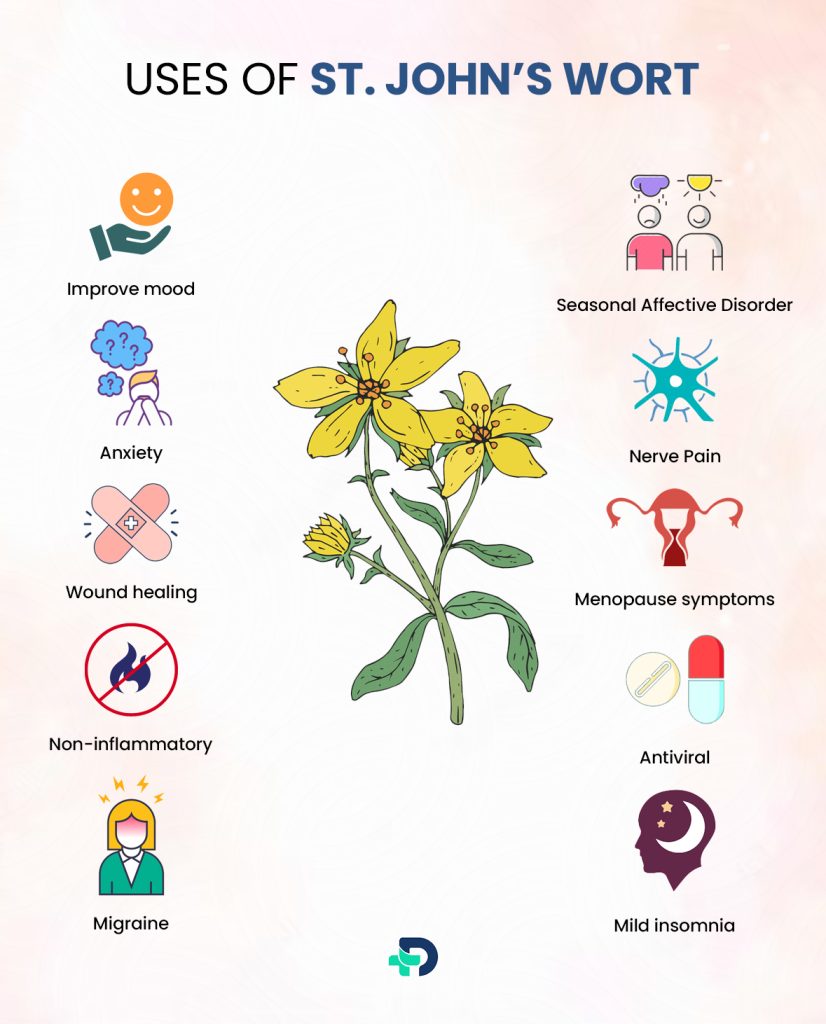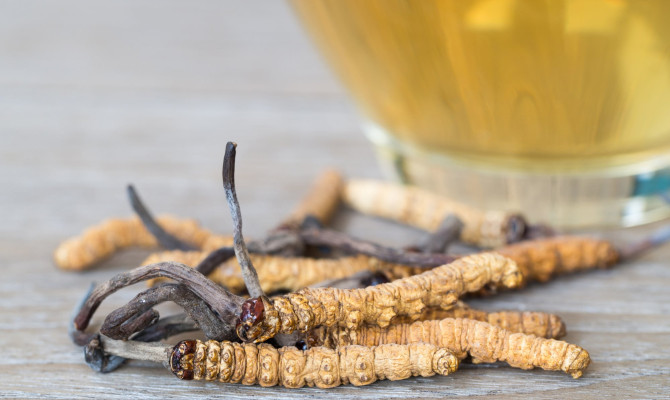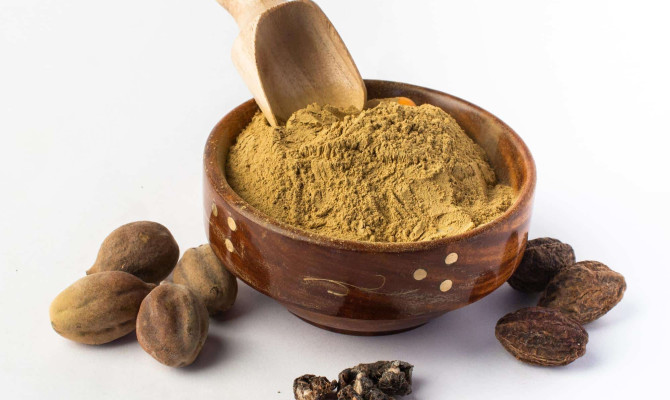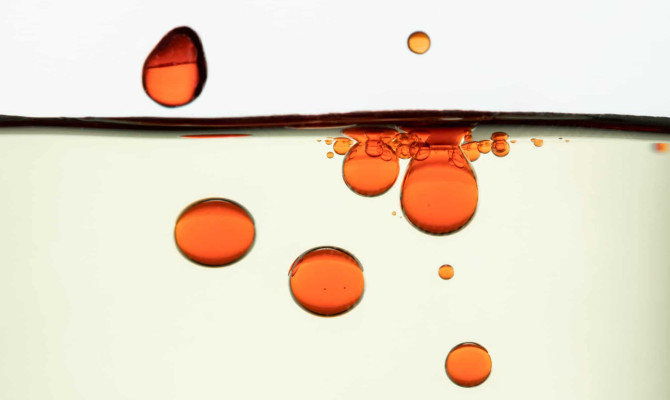Exploring St. John’s Wort: Side Effects, Uses, and Precautions

- St. John's Wort
- 30 Aug 2023
Introduction
What is St. John’s wort?
An herbal remedy called St. John’s wort is used to manage mental health issues. Hypericum perforatum is the scientific name for St. John’s wort. Common Names are St. John’s wort, Klamath weed, hypericum or goat weed. St. John’s Wort is a flowering plant that contains anthraquinones and is well-known for both its use in herbal medicine and its vivid yellow blossoms. Although it is indigenous to Europe, it has been imported to and naturalized in many other regions of the world, including the North America and Asia. Since ancient times, St. John’s Wort has been used to cure a wide range of ailments, especially those that affect the mood and mental health. 1Introduction| Researched based study from Mind (UK)

Mode of Action
How does St. John’s wort work?
Hypericin and hyperforin, two of its numerous active ingredients that are considered to influence mood. They are thought to affect the amounts of neurotransmitters and the activity of receptors in the brain. But the exact relationships are hard to understand and not fully clear.
Here is a short summary of how St. John’s Wort might work:
Neurotransmitter Modulation:
- Some chemicals in the brain, like serotonin, dopamine, and norepinephrine, may be affected by St. John’s Wort.
- These chemicals are very important for controlling mood, feelings, and the general health of the brain.
- The chemicals in the plant St. John’s wort may help make more of these neurotransmitters available for the brain.
Reuptake Inhibition:
- One theory is that chemicals in St. John’s Wort, especially hyperforin, may stop hormones like serotonin neurotransmitters from being reabsorbed by nerve cells too quickly.
- This could cause more of these neurotransmitters to be in the spaces between neurons where nerve cells connect.
- This results in higher levels of these neurotransmitters, which can potentially contribute to mood improvement.
Neuroplasticity:
- St. John’s Wort may also have an effect on neuroplasticity, which is the brain’s capacity to change and connect neurons in new ways.
- By encouraging neuroplasticity, the plant’s chemicals might make it easier for the brain to adjust to changes and deal with stress.
Uses

Uses:
The plant’s leaves and petals may be made into teas, tinctures, capsules, oils, and are often gathered for their therapeutic properties. Some common uses of St. John’s Wort are:
Improve mood:
- Compounds in the plant, like hypericin and hyperforin, are thought to affect neurotransmitter levels and receptor activity in the brain, which could improve mood.
Seasonal Affective Disorder:
- SAD is a type of sadness that usually happens in the fall and winter when there is less natural sunshine.
- It might help some SAD symptoms by making you feel better.
Anxiety:
- St. John’s Wort is known for its possible benefits of reducing worry and clinical features of generalized anxiety disorder.
Nerve Pain:
- St. John’s Wort has helped with nerve pain.
Wound healing:
- St. John’s Wort has been used directly as a plant treatment for small cuts, burns, and skin irritations in traditional medicine.
- Some people apply the oil made directly on their skin to help it heal.
Menopause symptoms:
- Because St. John’s Wort might make you feel better, people think it could help with mood swings and restlessness that come with menopause.
Non-inflammatory:
- Some study shows that St. John’s Wort may have anti-inflammatory qualities that could help with diseases like gout that cause inflammation.
Antiviral:
- St. John’s Wort has been studied for its possible antiviral qualities, especially against certain viruses like herpes simplex virus (HSV).
- Some studies have found that its chemicals might stop viruses from copying themselves, but more research is needed.
Migraine:
- Early study shows that taking a certain St. John’s wort product (Perforan, Godaru, or Iran) three times a day makes migraine pain less severe but does not make headaches happen less often.
Mild insomnia:
- Because St. John’s Wort may help calm and improve mood, some people use it as a natural treatment for mild sleeplessness.
- But there isn’t much proof from science to back up this use.
Side Effects
Side Effects
Possible side effects of St. John’s Wort are:
- Confusion
- Upset stomach
- Fatigue
- Loss of appetite
- Dry lips and mouth
- Frequent urination
- Loss of libido
- High blood pressure
- Rapid rise in the heart rate
- Anxiety
- Agitation
- Insomnia
- Restlessness
Even though St. John’s Wort is sometimes used as a natural treatment for light insomnia, it can also make some people feel restless and keep them from sleeping.
There is no proof that St. John’s Wort makes you gain weight. It might help with signs like losing your hunger, but it won’t make you gain weight directly.
Dosage
Dosage
In Adults:
- By mouth: For mild to moderate depression, most people used 300 mg three times a day of pure St. John’s wort extract with 0.3% hypericin content. 2Dosage | Researched based study from National Institutes of Health
- In some people, 250 mg twice a day of a St. John’s Wort extract that was standardized to 0.2% hypericin was used.
- Standardized 5% hyperforin St. John’s wort extract has been given in amounts of 300 mg three times a day.
In pre-menstrual syndrome:
- For premenstrual syndrome (PMS), people have taken 300 mg of a St. John’s wort preparation that has been standardized to 0.3% hypericin once a day.
For depression:
- Standardized hypericin extract, taken 300 mg three times a day, has been used to treat sadness that comes from depression.
For somatization disorder:
- A special ingredient called LI 160 has been used at a dose of 600 mg/day.
To help a wound heal:
- A cream with 5% St. John’s wort extract was used. It was put on three times a day starting 24 hours after a C-section and kept on for 16 days.
In children:
- Children 6–17 years old who have mild to moderate sadness have taken 150–300 mg of St. John’s three times a day for eight weeks.
- People have taken 300–1800 mg of a certain St. John’s Wort extract (LI 160, Lichtwer, Pharma) three times a day for up to six weeks.
Storage
Storage
Maintaining the efficacy and quality of St. John’s Wort (Hypericum perforatum) products over time requires careful storage. General recommendations for keeping St. John’s Wort are as follows:
- St. John’s Wort is photosensitive, so it’s best to keep it out of the light, both natural and artificial, and in a cool, dark spot.
- Should be kept at room temperature, out of direct sunlight and away from any source of heat such as an oven, stove, heater, or fireplace to avoid degradation of its active components.
- Make sure the containers of St. John’s Wort goods are firmly sealed to keep out moisture and maintain product quality.
- Keep them outside the bathroom or any other damp part of the home to avoid losing their efficacy and quality.
- St. John’s Wort tinctures and extracts should be kept in airtight containers at all times to avoid spoilage and loss of potency.
Precautions
Precautions
Here are few precautions that you must keep in your mind before using St John’s wort:
Photosensitivity:
- St. John’s Wort may make your skin more sensitive to sunlight, increasing your chance of being sunburned and causing skin damage. 3Precautions | Researched based study from National Institutes of Health
- While using St. John’s Wort, avoid standing in the sun for longer periods and use sunscreen to protect your skin.
Pregnancy and lactation:
- Due to possible hazards to the growing fetus or newborn, pregnant and nursing women should refrain from taking St. John’s Wort.
- It is unclear how St. John’s Wort affects pregnancy and nursing.
Children and adolescent:
- St. John’s wort is typically not advised for usage in children and teenagers owing to the paucity of studies on its safety and effectiveness in this demographic.
Surgery:
- If you are about to have any surgery, it’s crucial to let your doctor know that you take St. John’s Wort since it may interfere with the anesthetic and other drugs that will be given to you.
Alzheimer’s disease:
- There is worry that St. John’s wort could make people with Alzheimer’s disease more likely to get dementia.
Serotonin Syndrome:
- When St. John’s Wort is used with other drugs that alter serotonin levels, its possible effect on serotonin levels may raise the risk of serotonin syndrome.
- Agitation, disorientation, a fast heartbeat, and high blood pressure are some of the symptoms of serotonin syndrome, a dangerous and perhaps fatal illness.
Mental Health Conditions:
- It’s vital to speak with a healthcare professional before taking St. John’s Wort if you have a history of mental health issues, particularly schizophrenia or bipolar disorder, since it may impact mood and may even make symptoms worse.
Allergic reactions:
- A few people may be allergic to St. John’s wort or other members of the same plant family.
- Stop using it and get immediate medical help if you show adverse symptoms such as skin rash, swelling or itching.
Interactions
Drug interactions
Here are some drugs that can cause problems when taken with St. John’s Wort:
Antidepressants:
- St. John’s Wort can combine with a number of antidepressants, like monoamine oxidase inhibitors (MAOIs), selective serotonin reuptake inhibitors (SSRIs), and serotonin-norepinephrine reuptake inhibitors (SNRIs).
- This can cause serotonin syndrome, which is a potentially dangerous condition with signs like anger, confusion, a fast heart rate, and high blood pressure.
Birth Control Pills:
- St. John’s Wort can make hormonal birth control methods like birth control pills less effective, which could lead to unplanned pregnancies.
- For people taking St. John’s Wort, it is critical to use a different method of birth control.
Anticoagulants:
- St. John’s Wort may make anticoagulants like warfarin less effective, which could change how well the blood clots and increase the chance of bleeding.
HIV Medications:
- St. John’s Wort can have an effect on Antiretroviral medications, making them less effective and possibly making the treatment fail.
Immunosuppressants:
- St. John’s Wort can change how the body breaks down immunosuppressants, which are used after organ transplants or to treat inflammatory diseases.
- This could lower the drug levels and make them less effective.
Anti-Seizure Medications: 4Drug interactions| Researched based study from Medicines and Healthcare products Regulatory Agency
- St. John’s Wort might make some anti-seizure drugs less effective, which could make it hard to control seizures.
Cyclosporin:
- St. John’s Wort can change how the body breaks down cyclosporine, a drug that keeps organs from rejecting transplants.
Digoxin:
- St. John’s Wort can change the amounts of digoxin, which is a drug used to treat heart problems.
- This could cause uneven heartbeats or make the drug less effective.
Chemotherapy Drugs:
- St. John’s Wort may have an effect on how well and safely some chemotherapy drugs like cisplatin work.
These are just some examples of how St. John’s Wort can combine with other drugs. Before taking St. John’s Wort, it’s important to talk to a doctor, especially if you’re already on any medicines, to make sure there won’t be any dangerous conflicts.
Takeaways
Takeaways
St. John’s wort is classified as a dietary supplement by the Food and Drug Administration (FDA) in the US and is not permitted for use as a medicine. As a result, St. John’s wort is sold over-the-counter in the United States and many other nations. However, in certain nations, like Ireland, obtaining it requires a prescription. Because St. John’s wort functions similar to antidepressants, it’s important to discontinue using it slowly, just like you would with an antidepressant. It might be incredibly helpful to discuss the safest method of withdrawal with your doctor if you’re thinking about discontinuing taking St. John’s wort. 5Takeaways | Researched based study from National Institutes of Health
Any feedback on this article?
 This Articles content was accurate
This Articles content was accurate Very Informative Article
Very Informative Article I have a question or a comment
I have a question or a comment
 This article contains inaccurate content
This article contains inaccurate content This article was not helpful
This article was not helpful I have a question or a comment
I have a question or a comment
We appreciate your helpful feedback!
Checkout our social pages
References
-
Mind (UK)
Introduction
-
National Institutes of Health
Dosage
-
National Institutes of Health
Precautions
-
Medicines and Healthcare products Regulatory Agency
Drug interactions
-
National Institutes of Health
Takeaways





































